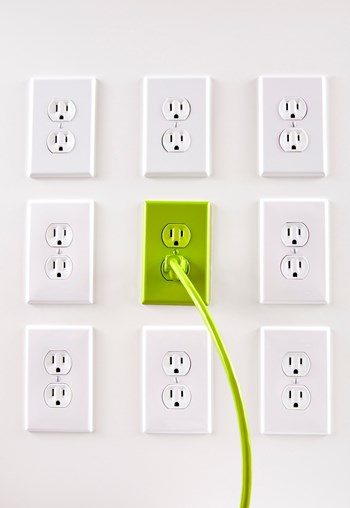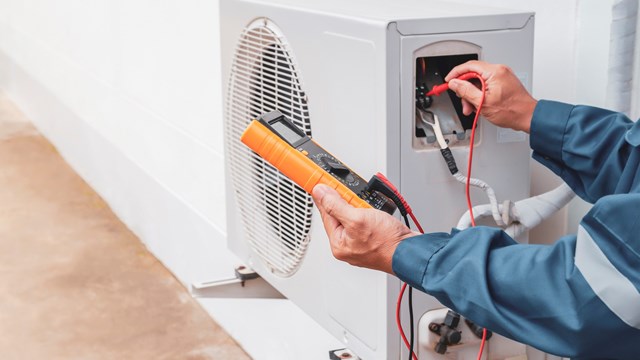
Eligible co-op boards facing skyrocketing maintenance charges due to rising energy costs can seek assistance from the New York Energy Smart Assisted Multifamily Program (AMP), administered by the New York State Energy Research and Development Authority (NYSERDA).
AMP is a flexible program that provides a range of technical and financial incentives to affordable multifamily properties in New York. The incentives trigger investment in capital projects involving energy efficiency improvements. AMP's goal is to improve the energy efficiency and energy management of these buildings, while reducing energy cost burdens on low- and moderate-income tenants.
The program targets both co-op and rental properties, and tailors its approach and creative energy solutions to the type and needs of a property.
Through AMP, property owners and co-op boards receive a consulting package valued in excess of $12,000, including a comprehensive energy audit. In addition, AMP offers access to low-interest financing, assistance in identifying additional sources of funding, and, in some cases, grants. Grant size varies depending on the scope of work and financial condition of the property.
Improvements may include upgrading lighting in common areas and residences with compact fluorescent lighting, replacing refrigerators with Energy Star® qualified units, replacing old or inefficient heating systems with high-efficiency units, improving ventilation, providing carbon monoxide detectors, adding water-saving devices, and installing new windows and doors.
Although rental properties and co-ops are both eligible for the program, co-ops often face unique challenges because the units are owner-occupied. In these situations, AMP is not dealing with a single owner; it may be dealing with five owners or even 5,000 owners.
This was the case at a large Mitchell Lama cooperative in Brooklyn, where AMP had allocated $131,250 for energy efficiency upgrades. According to the energy assessment, the replacement of non-Energy Star-qualified refrigerators was an integral part of the property's participation in the program. In a co-op, however, cooperators own their own refrigerators, and the co-op board was not in a position to require that all non-energy efficient refrigerators be removed.
All parties wanted to make the refrigerator swap as equitable for all residents as possible, regardless of the type of refrigerator they owned. So the AMP team worked with the co-op leadership to devise a plan that would offer a rebate to each resident to replace their refrigerator - even those who already owned Energy Star units. The rebate was set at 60 percent of the purchase price of a new, qualified refrigerator. The 60 percent figure was derived from the estimated, overall number of co-ops not having Energy Star units.
The AMP team also agreed with the co-op board on minimally invasive changes for interior lighting in each apartment. High efficiency lighting fixtures will be installed in halls and doorways, but existing bathroom and dining room lighting will remain in place. Additionally, compact fluorescent bulbs will be distributed to the residents.
These issues arose because both the light and refrigerator replacement were deemed to be key to the co-op's participation in the program and to ensure that the energy saving measures are cost-effective.
Currently, there are 20 metropolitan-area co-ops enrolled in AMP, for a total of 24,565 units in 118 buildings. Some of the larger co-ops involved in the program include Manhattan's Franklin Plaza Apartments with 1,634 units in 14 buildings, Village View with 1,256 units in seven buildings, and Esplanade Gardens with 1,872 units in six buildings. NYSERDA has currently committed over $10 million in grant money for co-op projects, leveraging over $40 million in additional investments.
Recently, the nation's largest housing cooperative, Co-op City in the Bronx, received more than $5.2 million in AMP funding for energy efficiency improvements, marking the largest grant of its kind the state has awarded under this program. With AMP's assistance, Co-op City is installing water conservation measures, lighting upgrades, various health and safety measures, and replacing elevator motors as part of an overall $19 million energy upgrade. The first year of energy savings are expected to exceed 32,000,000 kilowatt-hours, or enough electricity to power more than 6,600 apartments for a year. Co-op City will also investigate the feasibility and cost-effectiveness of powering the facilities with a cogeneration system.
Home to 50,000 residents, Co-op City is expected to save more than $3.5 million a year and more than $33 million over the life of the improvements. This cash reserve will help keep energy-related maintenance fees down.
Co-op boards or building managers can easily apply for AMP. To qualify for the program, a building must have five or more residential units, the owner or shareholders must pay the System Benefits Charge on their electric bills, and the owner or shareholders must demonstrate that the average household income of residents is no more than 80 percent of the New York State median. Funding is available on a first-come, first-served basis through June 30, 2006 or until all funds are committed. It is anticipated that future funding will be available.
For more information about the Assisted Multifamily Program, please visit NYSERDA's web site at






Leave a Comment